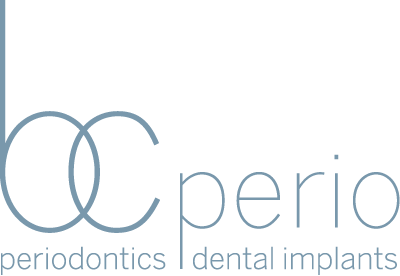Jawbone atrophy or jawbone deterioration can occur as a result of the loss of a tooth due to trauma, disease or dental decay. But this process can be halted by investigating implant dentistry in Park Cities.
When we suffer tooth loss, the gum tissue surrounding the lost tooth starts to shrink. This is generally due to bone loss that occurs naturally from lack of use. The result can even change your outward appearance making you look older than your years.
Is there anything that can be done to prevent this from happening after tooth loss? Dental implants have proven to not only stop jawbone atrophy, but with the addition of a beautiful restoration that covers the implant, the ability to eat, speak and smile again are restored.
A visit with Dr. Brad Crump, your implant dentist serving Park Cities TX, will determine if you are a candidate for dental implants. A thorough dental exam is conducted as well as an overall health screening to make sure you are healthy enough for the procedure.
Once through this part of the process, x-rays are taken to determine the available bone structure. If the bone has deteriorated or it is determined that your bone structure will not sufficiently support a dental implant, a bone graft might be suggested.
Your implant dentist will be able to describe the different procedures from a sinus lift to help restore bone in the upper jaw to building up the lower jaw through bone grafting.
A dental implant is placed in the gum tissue where the tooth is missing. It generally takes anywhere from three to six months for the dental implant to heal and successfully graft to the bone. Once your implant dentist has determined the healing process is successfully completed, a final restoration is added to cover your implant and you now have a fully functional tooth where the gap had been.
In addition to the beauty of having a tooth that matches the shape and shade of the surrounding teeth, the bone loss has been halted and you can resume eating, speaking and laughing once again. Your implant is virtually undetectable, and has now become a permanent part of your dental anatomy.
There is no special care needed with a dental implant. Good oral hygiene habits include brushing twice daily with a fluoride toothpaste or gel and flossing daily. Additionally, visiting your dentist twice per year for a professional cleaning and exam will allow you and your dental implant many happy years together.
